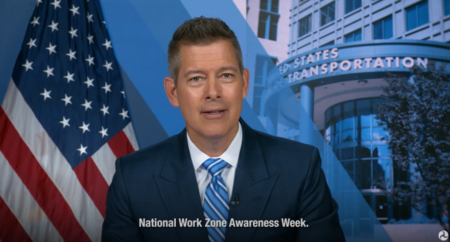The UK government has introduced new laws that will mean from next month drivers will be able to use certain advanced driver assistance systems (ADAS), such as remote control parking and motorway assist functions, on the country’s roads.
Changes to the UK’s Highway Code rulebook and relevant regulations were consulted on earlier this year, and received overwhelming support from a range of groups including auto makers, automotive systems manufacturers, insurance groups, and freight haulage companies. The government sees the law changes as being part of the process toward the eventual widespread use of automated vehicle technologies, leading ultimately to self-driving cars. Developments such as remote control parking and motorway assist have the potential to transform car travel for those with mobility challenges, unlocking tight parking spaces and using computer assistance to help driver accuracy on the road. The technology also has the potential to make driving more energy efficient, meaning cheaper, cleaner journeys, with improved air quality for both drivers and pedestrians.
The Department for Transport (DfT) says the updates will provide clarity for motorists about how the technologies can be used, and allow the increased use of features such as cruise control, providing significant advantages for drivers. With gadgets like these already available on some vehicle models, the updates see the law molding to the modern driving world, making sure drivers are ready to use the new technology safely and ensuring the law is flexible for future breakthroughs. The changes are part of a package of work to ensure UK road laws are fit to support automated driving technologies as they develop and provide clarity on new use cases.
The government also recently tasked the Law Commission with a detailed review of driving laws, along with planned updates to the code of practice to ensure that as technology develops, the UK remains one of the best places in the world to develop, test and drive automated and autonomous vehicles. This builds on previous consultations on automated driving, as well as the recently published Industrial Strategy, which designated the future of mobility as one of the four ‘grand challenges’. This strategy, along with changes to the regulatory framework, will help realize the government’s desire to see fully-self-driving cars on the UK roads by 2021.
“Advanced driver assistance systems are already starting to revolutionize driving,” explained Jesse Norman, UK Transport Minister. “It’s encouraging to see the strong support for these innovations from a range of stakeholders. We will continue to review our driving laws, in order to ensure drivers can enjoy the potential of these new tools safely.”
Mike Hawes, chief executive of the Society of Motor Manufacturers and Traders (SMMT), commented, “Connected and autonomous vehicles will transform our lives, with the potential to reduce up to 25,000 serious accidents and create more than 300,000 jobs over the next decade. This announcement is just one step toward increasing automation, but it is an important one, enabling increased convenience especially for those with restricted mobility. It is another welcome commitment from government to keep the UK firmly at the forefront of connected and autonomous vehicle development and roll-out.”




